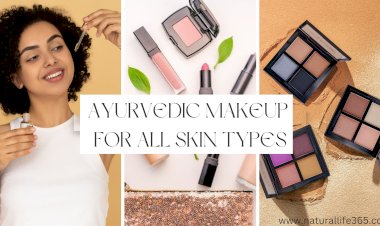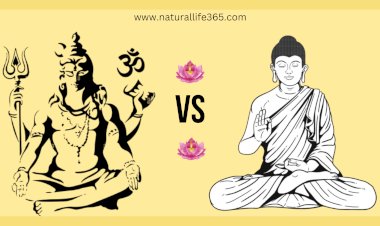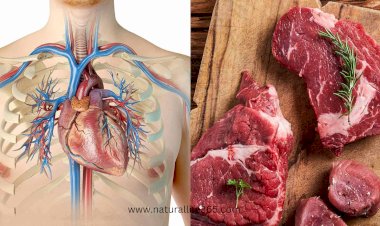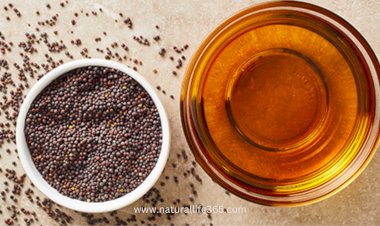Say Goodbye to Acne and Dark Spots with Turmeric
Are you struggling with acne and dark spots? Learn how turmeric can help you say goodbye to these skin concerns and achieve a radiant complexion in this informative blog post.
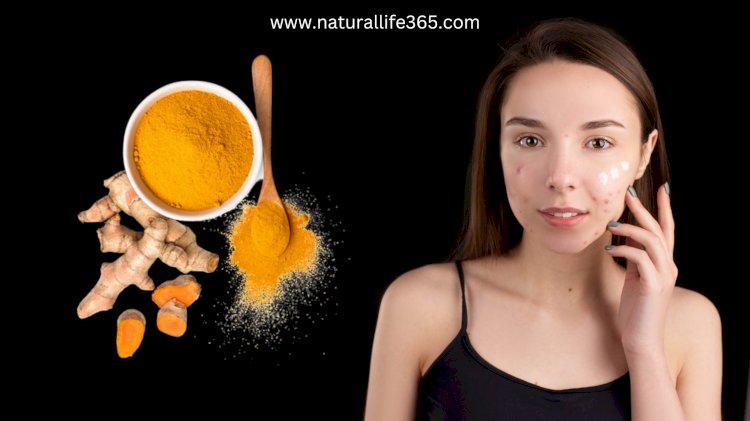
Acne and dark spots are two of the most common skin concerns that many of us face. Not only can they be unsightly, but they can also affect our confidence and self-esteem. That's why finding effective and natural solutions to these issues is so important.
And that's where turmeric comes in. This bright yellow spice has been used for centuries in Ayurvedic medicine and has been shown to have incredible anti-inflammatory and antioxidant properties. In recent years, it has gained popularity in the skincare world as a natural way to treat acne and fade dark spots.
In this post, we're going to dive into the benefits of turmeric and how it can help with acne and dark spots. We'll also be sharing some easy and effective ways to use turmeric in your skincare routine, as well as some precautions to keep in mind.
So if you're ready to achieve healthy, radiant skin, keep reading!
You can also read What are the Best Ayurvedic Ingredients for Homemade Face Masks?
Understanding Turmeric
Turmeric is a spice that has been used for centuries in Indian traditional medicine and cooking. It's a member of the ginger family and is native to South Asia. The bright yellow color of turmeric comes from a compound called curcumin, which has been shown to have many health benefits.
In addition to its culinary uses, turmeric has been used in Ayurvedic and Chinese medicine to treat a variety of ailments. It's been shown to have anti-inflammatory, antioxidant, and antimicrobial properties, making it a powerful natural remedy.
One of the main ways that turmeric can benefit the skin is through its anti-inflammatory properties. Inflammation is a natural response of the immune system to injury or infection. However, chronic inflammation can contribute to a variety of skin conditions, including acne and dark spots. Curcumin has been shown to reduce inflammation by inhibiting the production of inflammatory cytokines.
Turmeric is also a powerful antioxidant, which means it can help protect the skin from damage caused by free radicals. Free radicals are unstable molecules that can damage cells and contribute to aging and disease. Antioxidants neutralize free radicals, helping to prevent this damage.
In addition to its anti-inflammatory and antioxidant properties, turmeric has been shown to have antimicrobial effects. This means it can help kill or prevent the growth of harmful bacteria on the skin, which can contribute to acne.
Overall, turmeric is a potent natural remedy that can benefit the skin in many ways. In the next section, we'll explore how turmeric can specifically help with acne and dark spots.
How Turmeric Can Help with Acne and Dark Spots
Acne and dark spots are two of the most common skin concerns that many people face. Fortunately, turmeric is a powerful natural remedy for both of these issues.
One of the main ways that turmeric can help with acne is through its anti-inflammatory properties. Acne is an inflammatory skin condition when hair follicles become clogged with oil and dead skin cells. This can lead to the formation of pimples, blackheads, and whiteheads. Turmeric's anti-inflammatory properties can help reduce inflammation in the skin and calm acne breakouts.
Turmeric has also been shown to have antibacterial properties, which can help kill the bacteria that contribute to acne. Specifically, curcumin is effective against the bacteria Propionibacterium acnes, which is a major contributor to acne.
In addition to its benefits for acne, turmeric can also help fade dark spots and hyperpigmentation. Dark spots occur when the skin produces too much melanin in certain areas, often as a result of inflammation or UV damage. Turmeric's anti-inflammatory and antioxidant properties can help reduce inflammation and prevent further damage to the skin. In addition, turmeric has been shown to inhibit melanin production, which can help fade dark spots over time.
Overall, turmeric is a powerful natural remedy for both acne and dark spots. In the next section, we'll explore some of the different ways you can use turmeric to benefit your skin.
Ways to Use Turmeric for Acne and Dark Spots
Now that we've explored how turmeric can benefit the skin, let's talk about some of the different ways you can use it to treat acne and fade dark spots.
- Turmeric Face Mask: One of the easiest ways to use turmeric for your skin is to make a face mask. Simply mix 1-2 teaspoons of turmeric powder with a tablespoon of honey and enough yogurt or milk to create a paste. Apply the mask to your face and leave it on for 10-15 minutes before rinsing off with warm water. This mask can help reduce inflammation, kill bacteria, and fade dark spots over time.
- Turmeric Spot Treatment: If you have a particularly stubborn acne spot, you can create a targeted treatment by mixing a small amount of turmeric powder with enough water to create a paste. Apply the paste directly to the spot and leave it on for 10-15 minutes before rinsing off with warm water.
- Turmeric Toner: You can also use turmeric as a toner to help brighten the skin and fade dark spots. Mix 1-2 teaspoons of turmeric powder with enough witch hazel or apple cider vinegar to create a toner. Apply the toner to your face with a cotton pad after cleansing.
- Turmeric Supplements: If you don't want to use turmeric topically, you can also take turmeric supplements orally. Look for supplements that contain curcumin, and follow the recommended dosage on the label. Taking turmeric supplements can help reduce inflammation throughout the body, which can benefit the skin as well.
While turmeric can be incredibly beneficial for the skin, it's important to keep in mind that it can stain clothing and surfaces. Be sure to rinse off any turmeric masks or treatments thoroughly, and avoid using them on towels or linens that you don't want to stain.
In addition, if you have sensitive skin, it's always a good idea to patch-test any new skincare products or treatments before using them on your entire face.
By incorporating turmeric into your skincare routine, you can say goodbye to acne and dark spots and hello to a healthier, more radiant complexion.
Precautions and Potential Side Effects
While turmeric is generally considered safe for most people, there are a few precautions and potential side effects to keep in mind.
Firstly, if you are pregnant or breastfeeding, it's important to talk to your healthcare provider before using turmeric. While turmeric is generally considered safe during pregnancy and breastfeeding in normal culinary amounts, higher doses or supplements may not be recommended.
Additionally, turmeric may interact with certain medications, including blood thinners, diabetes medications, and stomach acid reducers. If you are taking any medications, be sure to talk to your healthcare provider before using turmeric supplements or using turmeric topically.
In terms of potential side effects, some people may experience skin irritation or allergic reactions when using turmeric topically. This is more common in people with sensitive skin, so it's always a good idea to patch-test any new skincare products or treatments before using them on your entire face.
Finally, turmeric can stain clothing and surfaces, so be sure to rinse off any turmeric masks or treatments thoroughly and avoid using them on towels or linens that you don't want to stain.
In general, turmeric is a safe and effective natural remedy for acne and dark spots. However, it's important to use it responsibly and talk to your healthcare provider if you have any concerns or questions. By following these precautions, you can safely incorporate turmeric into your skincare routine and enjoy its many benefits for your skin.
Final Thoughts and Recommendations for Using Turmeric in Skincare
In conclusion, turmeric is a powerful natural ingredient that can help improve the appearance of acne and dark spots. Whether you choose to use it in a face mask, toner, or supplement, turmeric's anti-inflammatory and antioxidant properties can help soothe irritated skin and reduce hyperpigmentation.
However, it's important to keep in mind that turmeric is not a magic cure-all, and results may vary from person to person. While many people have had success using turmeric for their skin concerns, it's not guaranteed to work for everyone.
In addition, it's important to use turmeric responsibly and with caution. Always patch-test new products or treatments, and talk to your healthcare provider if you have any concerns or questions. If you experience any skin irritation or allergic reactions, discontinue use immediately.
When using turmeric in your skincare routine, it's also important to be patient and consistent. While some people may see results immediately, it can take several weeks or even months to see significant improvements in your skin. Stick with it and be consistent with its uses to see the best results.
Finally, it's important to remember that good skincare goes beyond just using one ingredient. A healthy diet, proper hydration, and a consistent skincare routine are all important factors in achieving healthy, glowing skin. So while turmeric can be a great addition to your skincare routine, don't forget to take care of your skin from the inside out as well.
By following these tips and using turmeric responsibly, you can say goodbye to acne and dark spots and hello to a more radiant, healthy complexion.
Maybe you want to read Turmeric vs Curcumin: Which Should You Take?
If you value these free online resources provided by Natural Life 365, please consider supporting my website by sharing the blogs![]()
DISCLAIMER:
Some of the links in this content may be affiliate links. This means that if you click on one of the links and make a purchase, I may receive a commission (at no extra charge to you). However, I only recommend products that I personally use and have tested myself. Also, understand that I have taken reasonable steps to ensure that the information on this content is accurate, but I cannot represent that the website(s) mentioned in this post are free from errors. Please, check the Affiliate Disclosure at the bottom of this website.

















